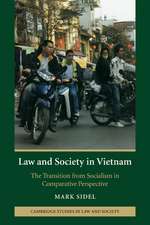Purity and Exile: Violence, Memory, and National Cosmology among Hutu Refugees in Tanzania
Autor Liisa H. Malkkien Limba Engleză Paperback – 15 aug 1995
In this study of Hutu refugees from Burundi, driven into exile in Tanzania after their 1972 insurrection against the dominant Tutsi was brutally quashed, Liisa Malkki shows how experiences of dispossession and violence are remembered and turned into narratives, and how this process helps to construct identities such as "Hutu" and "Tutsi."
Through extensive fieldwork in two refugee communities, Malkki finds that the refugees' current circumstances significantly influence these constructions. Those living in organized camps created an elaborate "mythico-history" of the Hutu people, which gave significance to exile, and envisioned a collective return to the homeland of Burundi. Other refugees, who had assimilated in a more urban setting, crafted identities in response to the practical circumstances of their day to day lives. Malkki reveals how such things as national identity, historical consciousness, and the social imagination of "enemies" get constructed in the process of everyday life. The book closes with an epilogue looking at the recent violence between Hutu and Tutsi in Rwanda and Burundi, and showing how the movement of large refugee populations across national borders has shaped patterns of violence in the region.
Through extensive fieldwork in two refugee communities, Malkki finds that the refugees' current circumstances significantly influence these constructions. Those living in organized camps created an elaborate "mythico-history" of the Hutu people, which gave significance to exile, and envisioned a collective return to the homeland of Burundi. Other refugees, who had assimilated in a more urban setting, crafted identities in response to the practical circumstances of their day to day lives. Malkki reveals how such things as national identity, historical consciousness, and the social imagination of "enemies" get constructed in the process of everyday life. The book closes with an epilogue looking at the recent violence between Hutu and Tutsi in Rwanda and Burundi, and showing how the movement of large refugee populations across national borders has shaped patterns of violence in the region.
Preț: 272.65 lei
Nou
Puncte Express: 409
Preț estimativ în valută:
52.18€ • 53.90$ • 43.43£
52.18€ • 53.90$ • 43.43£
Carte tipărită la comandă
Livrare economică 25 martie-08 aprilie
Preluare comenzi: 021 569.72.76
Specificații
ISBN-13: 9780226502724
ISBN-10: 0226502724
Pagini: 374
Ilustrații: 10 maps
Dimensiuni: 152 x 229 x 23 mm
Greutate: 0.51 kg
Ediția:1
Editura: University of Chicago Press
Colecția University of Chicago Press
ISBN-10: 0226502724
Pagini: 374
Ilustrații: 10 maps
Dimensiuni: 152 x 229 x 23 mm
Greutate: 0.51 kg
Ediția:1
Editura: University of Chicago Press
Colecția University of Chicago Press
Cuprins
List of Narrative Panels
Acknowledgments
Maps
Introduction: An Ethnography of Displacement in the National Order of Things
1: Historical Contexts, Social Locations: A Road Map
2: The Mythico-History
3: The Uses of History in the Refugee Camp: Living the Present in Historical Terms
4: Town Refugees: A Pragmatics of Identity
5: The Danger of Assimilation and the Purity of Exile
6: Consciousness and Liminality in the Cosmological Order of Nations
Postscript: Return to Genocide
Notes
References
Index
Acknowledgments
Maps
Introduction: An Ethnography of Displacement in the National Order of Things
1: Historical Contexts, Social Locations: A Road Map
2: The Mythico-History
3: The Uses of History in the Refugee Camp: Living the Present in Historical Terms
4: Town Refugees: A Pragmatics of Identity
5: The Danger of Assimilation and the Purity of Exile
6: Consciousness and Liminality in the Cosmological Order of Nations
Postscript: Return to Genocide
Notes
References
Index













